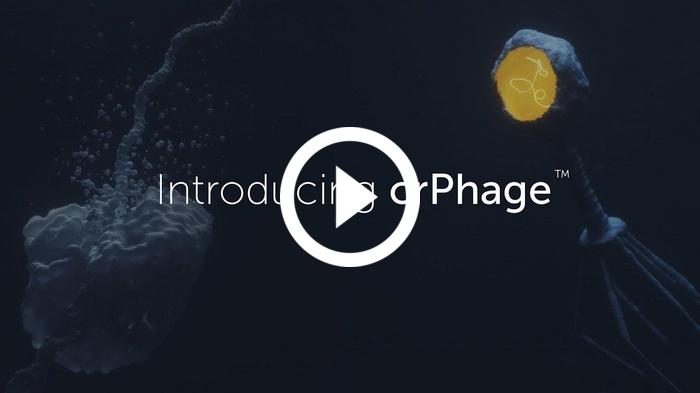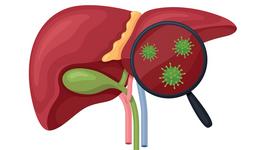Promising Data From First-ever CRISPR Phage Therapy Trial
CMN Intelligence - The World’s Most Comprehensive Intelligence Platform for CRISPR-Genomic Medicine and Gene-Editing Clinical Development
Providing market intelligence, data infrastructure, analytics, and reporting services for the global gene-editing sector. Read more...

Locus Biosciences announced on Wednesday that it successfully completed the world's first clinical trial using a CRISPR-enhanced bacteriophage therapy, in which Cas3 enhanced the virus' natural ability to kill the bacteria (E. coli) behind the urinary tract infections.
The company has yet to publish a paper on the phase Ib clinical trial or post results to the National Institutes of Health's clinical trial database. But Locus Biosciences co-founder and Chief Scientific Officer Dave Ousterout says that the experiment was an overall success and that he's excited to move on to phase II soon. He says that the study gives him hope that engineered bacteriophages could someday become a new weapon in the fight against the growing threat of antimicrobial-resistant strains of bacteria.
Weaponized bacteria-killers
Typically, phage treatments use one of two approaches, Ousterout explains. Either scientists use a naturally-lytic virus and rely solely on its ability to kill pathogenic bacteria, or they »hollow out« the phage, as Ousterout puts it, replacing its genes with something like CRISPR that will do the job instead.
Locus Biosciences decided to take the nuclear approach and become the first company to combine both mechanisms, using both the bacteriophage's lytic properties and CRISPR-Cas3's enzymatic DNA-destroying properties in concert.
»We use CRISPR-Cas3 to augment the killing ability of naturally-lytic phages,« Ousterout says.
»Why would you put something that kills into something that already kills? What we figured out is that not all phages are made equally. Surprisingly, Cas3 enhances the ability of a given phage pretty significantly. We can take something that kills with 99 per cent effectiveness, give it CRISPR, and not recover anything viable.«
As Joseph Nixon, Senior Vice President of Business Development at Locus Biosciences, previously explained to CRISPR Medicine News, CRISPR-Cas3 is fairly similar to its gene-editing cousin, CRISPR-Cas9. Both can target and alter specific locations on a DNA sequence. But while Cas9 makes a double-stranded break that makes it possible to either add to or delete a specific portion of the genetic code, Cas3 acts more like a woodchipper — it begins to degrade the DNA, destroying the target genome as it goes.
That makes it a valuable tool for killing off pathogenic bacteria, Ousterout explains. Like any other gene therapy, the trick is getting it to target, infiltrate, and kill off the correct cells.
Safe for human use at a high dose
In this specific case, the researchers designed a randomized, placebo-controlled, double-blinded clinical trial to test this CRISPR-enhanced phage therapy, dubbed LBP-EC01, as a treatment for the E. coli bacteria that causes urinary tract infections. And, in a divergence from previous phage treatment trials, Ousterout and his team didn't treat the study volunteers with antibiotics at all — the CRISPR-enhanced bacteriophage had to go it alone.
At the phase Ib step of the clinical trial process, scientists make sure that their treatment is safe — figuring out whether it does what it's supposed to come later in phase II. So to that effect, Ousterout says that he and his team didn't see a single drug-related adverse effect during the entire experiment. That means that the phage treatment didn't seem to impact human cells at all — making it a far more precise bacteria-killing tool than broad-spectrum antibiotics or other therapies currently in use. More importantly, the data suggest that it's safe for human use even at high doses.
And most interestingly, Ousterout says they found clear evidence that LBP-EC01 did its job well and killed off the E. Coli. His team is still poring over the data and will be finalizing its exploratory analysis over the next few weeks, so he says he can't confidently share numbers today. But he adds that he designed the study to also look for what's called amplification — evidence that the hijacked bacteria mass produces more copies of the virus before bursting and releasing them into the host body.
Explainer of the CRISPR Cas3-enhanced bacteriophage (crPhage) technology. Courtesy of Locus Biosciences.
What about efficacy?
With the concession that this clinical trial wasn't designed to test for efficacy, Ousterout says that he saw signs of the exact level of this viral amplification that one would expect if the treatment was working — good news for the future of targeted CRISPR phage treatments.
Of the patient data that the team has analyzed so far, nine out of 11 patients who received the experimental treatment demonstrated amplification. Data on the other two »look promising,« but it's too soon to know for sure.
»If you see amplification, that means you're killing the bug — the E. Coli,« Ousterout says.
It's too soon to definitively say that his phage treatment cured the urinary tract infections, but based on what data he does have, Ousterout is optimistic that the treatment will work.
»That's where this study gets a little beyond the intent of its design. This study is not designed, powered, or sampled to measure the curative effect. Instead, what we're able to clearly show is that they're getting the amplification. Now all the exploratory analysis that we expect to have over the coming weeks is determining what the effect it had on the E. Coli concentration level compared to the control,« Ousterout explains.
To measure that amplification, the researchers catheterized the volunteers. Every 12 hours, a dose of phage therapy was administered directly into the bladder, where the bacteria were growing. What the team found, however, was that the virus concentration in volunteers' urine never diluted to the extent a typical medication might. Instead, virus levels stayed high, indicating that the treatment successfully targeted, replicated inside, and killed off the bacteria even in between doses.
Of course, any commercially available version of the treatment would come in the form of an injection, not a catheterization, Joseph Nixon previously explained.
First, there are several important caveats. Chief among them is, of course, that the Locus Biosciences team isn't done with its analysis and that it still hasn't conducted a phase II trial. But some key details in this study's methodology will help put the tentative-yet-encouraging results into context.
For example, the phage treatment didn't actually cure any urinary tract infections. That's because none of the study volunteers actually had a diagnosable infection that could be cured. Rather, they had colonies of E. Coligrowing in their bladders that, while posing a serious problem that needed addressing, hadn’t reached the threshold of a full-blown infection.
»It was very unique in that we picked a patient population that is asymptomatic, but is what we call colonized by E. Coli. Not quite healthy but not quite actively infected,« Ousterout says.
So while there was clear evidence of viral amplification, it was impossible for the Locus Biosciences team to measure metrics like alleviated symptoms.
Phage therapy as a first-line rather than a last resort
If future clinical trials continue to go well, then Cas3 bacteriophages may prove effective at killing other kinds of pathogenic bacteria — even those that have grown to resist antibiotics like Penicillin. It could even, says Ousterout, help treat serious diseases — even potentially including cancers — by hunting and destroying bacteria in the microbiome or elsewhere that contributes to those diseases emerging.
»In colorectal cancer, there's some evidence that patients who have long term gastrointestinal inflammation have patchy biofilms in their intestinal tract that have consistent bacteria strains in it. One of the bacterial species produces a toxin that may mutate DNA. Another one essentially induces chronic inflammation. The action of those two create an environment that is more conducive to ulcerative colitis or cancer,« Ousterout says.
»It's a chicken and egg situation. We view our tool as being able to help test which is the chicken and which is the egg,« he adds.
Regardless of specific applications that may or may not emerge down the road, studies like these show that phage therapy is leaving the realm of the last resort tool used only in an emergency, which is where it exists today.
»The FDA wants to make sure that these drugs see the light of day in the clinic. They want it because they know they are a necessary component of the arsenal if they can work,« Ousterout says.
With increased interest among researchers and increased funding coming from major business and regulatory partners — Ousterout pointed toward his company's work with Johnson & Johnson — who want to help develop the next big antibiotic treatment, Ousterout predicts that bioengineered phage therapies are going to become a major contributor to the next generation of medical treatments.
To that end, Ousterout has ambitious goals for his Cas3 phages — and high hopes for how they'll fare.
»We're going to move on to phase II and really put it to the test. And for us, that's the signature trial for this UTI indication — to take a rigorous clinical study that demonstrates phage therapy in an actively symptomatic population.«
Dan Robitzski is a science journalist and former neuroscientist based in Los Angeles.
Tags
ArticleInterviewNewsUrinary Tract Infections, UTIMicrobiomeCas3FDALOCUS Biosciences, Inc.Clinical
CLINICAL TRIALS
Sponsors:
Base Therapeutics (Shanghai) Co., Ltd.
Sponsors:
Base Therapeutics (Shanghai) Co., Ltd.








